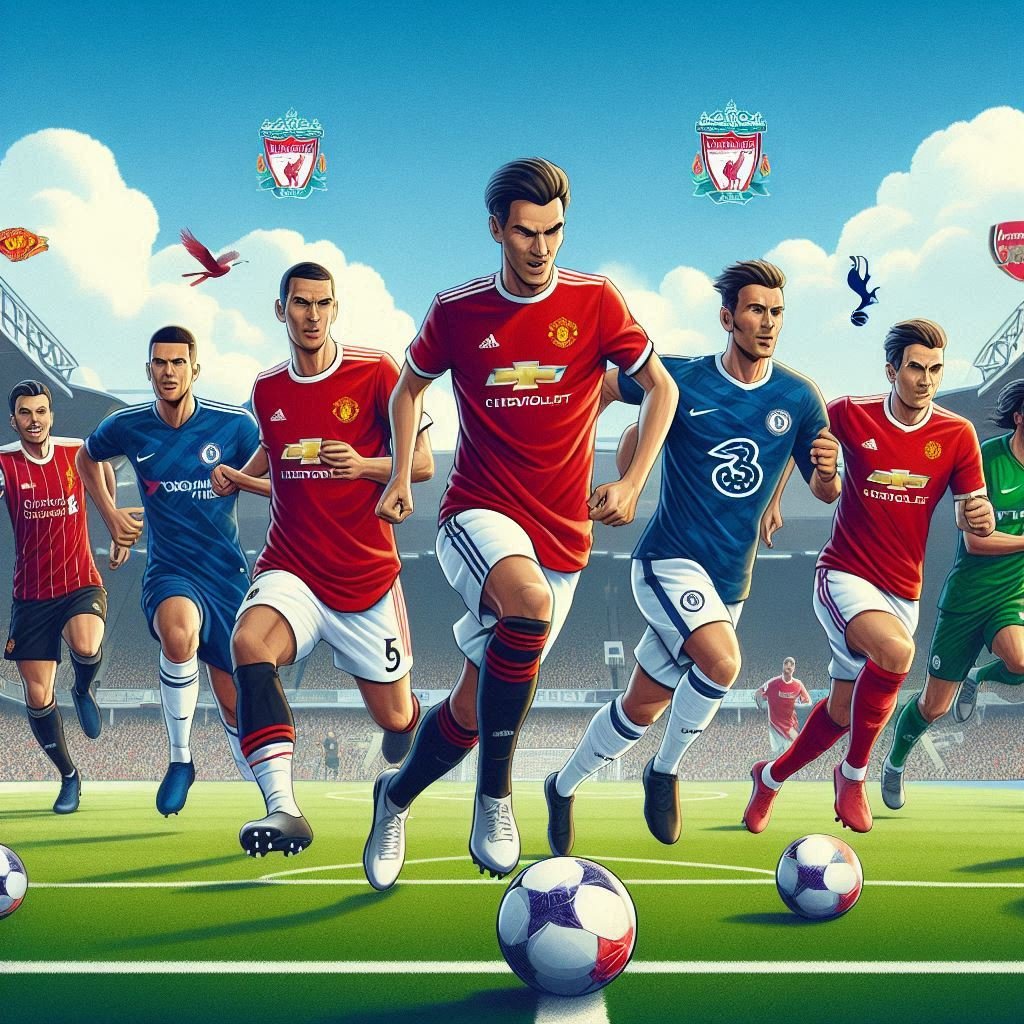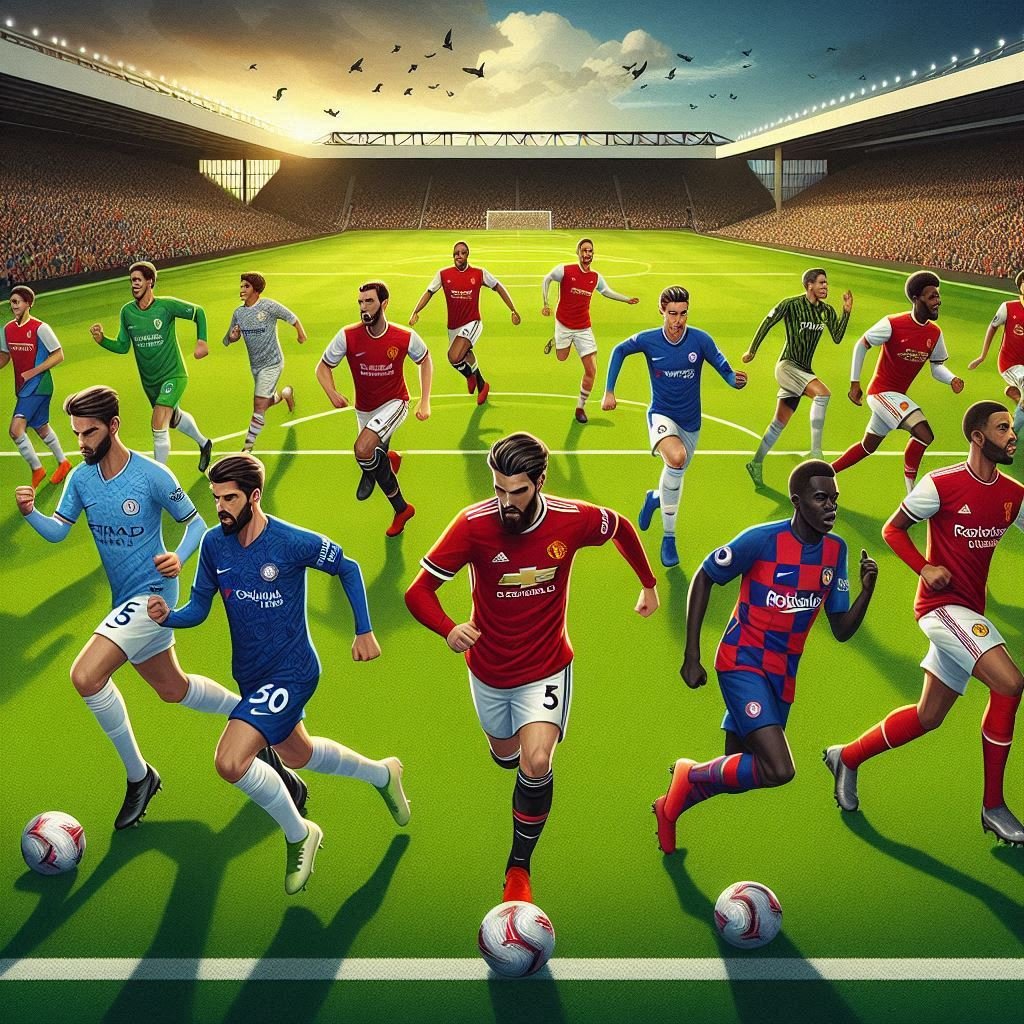English Premier League Teams
Football is more than just a sport; it is a cultural phenomenon, a craze observed across the world. This is evidenced best in England, the host to the Premier League, arguably the most thrilling and competitive professional association football league globally. But beyond the pitch, there’s another contest taking place: the war as it were for the fans’ allegiance. In this article, you will discover more about the ranking of English Premier League teams’ popularity and find out what makes some of the clubs different from others and how they manage to stir up the imaginations of millions of people all over the world.
The Factors Behind Ranking of English Premier League Popularity
When it comes to the ranking of English Premier League teams’ popularity, several key factors come into play:
- History and Tradition: Historically successful clubs tend to perform well in the popularity contest. The historical accounts, myths, and beliefs shared with these teams form an emotional bond that is personalized.
- On-Field Success: It does not come as a shocker that winning those trophies and playing well to regularity increases the demand for the team. Success makes followers, both domestic and international.
- Star Power: It is rather important to mention that having familiar and attractive-conceived personalities as the members of a certain team does matter. Top talent do, on some occasions, come with their supporters to their clubs of work.
- Global Marketing: This has nothing to do with technical knowledge, but how a club handles its marketing strategy and its international outlook can really determine its success. This relates to everything from social media profiles to pre-season tours and sponsorships, all-encompassing the generic strategies of the RSL.
- Community Engagement: The tested hypothesis suggests that teams with a localized identity receive continuous support and popularity among their fans.

Top Contenders in the Popularity Rankings
Now, let’s look at some of the clubs that consistently rank high in the Ranking of English Premier League Teams popularity:
1. Manchester United
Manchester United has always been in and around the pinnacle of any ranking of English Premier League teams’ popularity. Manchester United has a strong promotional stand, having been under arguably the best trainer in football history, Sir Alex Ferguson. In addition, it boasts a fan base spread globally; hence, its popularity is not greatly affected by the below-par performance on most occasions.
2. Liverpool
The Reds have recently gained higher popularity for their team with the help of their mentor, Jurgen Klopp. Loyal supporters, pride song You’ll Never Walk Alone, and the and the latest achievements that the team boasts contribute to their list of the most favorite Premier League teams.
3. Arsenal
The Gunners have a strong fan base mainly because of their better looks and their ability to deliver good performances season in and season out. Although trophies have been more of a challenge to earn the past few years, the demand is still steady.
4. Chelsea
With Roman Abramovich’s stake, the Blues soon turned into a steady team both financially and in terms of performance. Cue success in the 21st century has helped boost their position in the Ranking of English Premier League Teams popularity.
5. Manchester City
The blue side of Manchester has only recently been skyrocketing in popularity after a boost both in investor interest and on the field performance. The stylish sort of play due to Pep Guardiola has enamored many people towards them.
The Impact of Popularity on Club Finances
The ranking of English Premier League teams’ popularity is not only a matter of ego—it influences the money aspect of things, too. More popular teams tend to:
- Increase merchandise sales across the world.
- Secure higher-profile sponsorship partnerships
- In return, receive a higher amount of fees for broadcasting.
- Make fans a selling point more a part of the stadiums more frequently.
This financial advantage can perpetuate itself; popular football teams can spend more money on their players and stadiums and again achieve further success and therefore perhaps more interest.
The Role of Social Media in Popularity Rankings
Even today’s organizations give great consideration to their ranking of English Premier League teams popularity. Clubs spend a lot of money on the social platforms and develop good content to get in touch with the fan base. The number of subscribers on such social networks as Instagram, Twitter, and TikTok gives some information about the interest of the team all over the world.
Emerging Challengers in the Popularity Stakes
While the traditional « Big Six » (Manchester United, Liverpool, Arsenal, Chelsea, Manchester City, and Tottenham Hotspur) often dominate discussions of Premier League team popularity, other clubs are making strides:
- Leicester City: Their Premier League win was more like a fairy-tale one in the entirety of 2016 that made them gain much consideration internationally.
- Wolves: Marketing has grown to be international in Asia, especially China.
- Leeds United: After many years out of the top English football’s top league, their promotion brought back attention to this historic team.
These teams prove that the ranking of English Premier League teams’ popularity is dynamic and can change progressively.
The Global Reach of Premier League Popularity
The most appealing feature of the Ranking of English Premier League teams’ popularity is its worldwide connection. The fans of Premier League clubs are almost all over the world, including in the city that never sleeps to a village. This has been so evidenced as the league has been attracting the attention of fans from different parts of the globe, guided by the execution of quality matches, strategic marketing strategies, and of course the popular language of football.

Conclusion
These rankings of English Premier League teams’ popularity are a dynamic system that is not easy to describe. We moved on to know the most supported clubs all around the world, and interestingly, Manchester United and Liverpool remain favorites, but, given that the nature of football is dynamic and popularity takes form in terms of performance, marketing, and stories that are being told,
Thus, Premier League shifting in its characteristics can still consider the increase in the teams’ popularity. The only thing that has remained constant is the end users, the fans, as they continue to support this beautiful game all over the world. Whether you back a multinational corporation or a fightingly independent minnow, your dedication helps to make the Premier League the football league watched by more people than any other.
FAQs
How is the popularity of Premier League teams measured?
Fan base is often expressed in terms of social following, estimated coverage around the globe, amount of sold merchandise, stadium attendance, etc.
Can a team’s popularity change quickly?
However, the long-term shift in popularity tends to be relatively slow, meaning that the processes unfolding can be linked to events such as a shock league victory or the acquisition of a famous international player.

